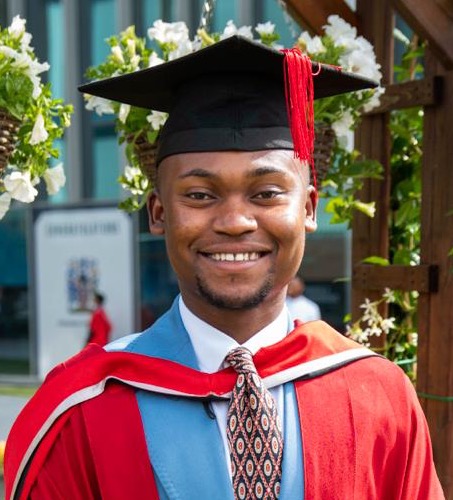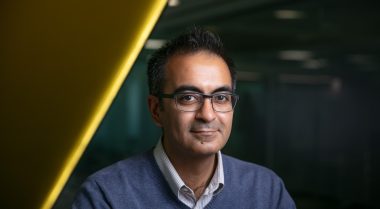Health Data Science: It's about making a contribution to the wider community
10 November 2023 | Author: Kluivert Boakye Duah, Intern at Public Health Scotland
Kluivert Boakye Duah wanted to work in data science - recognising its transformative power - but it was only when he was introduced to the HDR UK Black Internship Programme, he realised that by focusing on healthcare he could make a real contribution to building a better world.
As an undergraduate in Ghana studying statistics I became increasingly aware of the world-changing potential of data science.
I would watch YouTube and could see how it was impacting the world. It was fascinating and wanted to learn more about.
 However, my programme was focused on theory and we were not really exposed to coding and artificial intelligence. So I needed something more.
However, my programme was focused on theory and we were not really exposed to coding and artificial intelligence. So I needed something more.
With no suitable courses available in Ghana, I taught myself coding and successfully applied for a master’s at the University of Teeside. At this point I knew I loved data science but it’s a vast field and I was unsure what direction to take.
A friend then told me about the HDR UK Black Internship Programme and how it enables participants to work with a host organisation to carry out a real-world research project. Having seen videos about how data science made a huge contribution in the fight against COVID-19, I decided to apply.
I ended up working with Public Health Scotland looking at smoking and alcohol cessation among young people.
Their work to put measures in place to help young people stop smoking was really good. In the long term it can reduce cancer – because smoking is such a risk factor in that and many other diseases.
I really saw how using data from people’s daily lives can help clinicians tackle problems like this. Being part of projects like that makes you feel like you are making a contribution to the community.
It convinced me that health data science was the path I should follow.
As a result I decided to apply for a PhD. The internship helped with this, having provided me with important experience so I could clearly demonstrate an interest and knowledge of the field.
I was then accepted at Queen’s University Belfast to carry out research into blood cancers.
So it was through the internship that I got an interest in using data science in healthcare. Humanity needs good health care systems because if we are healthy, that is when we can venture into improving other aspects of our lives. But it needs to start with health.
There are a lot of gaps in healthcare and there are a lot of diseases that need research. If we can get a cure for them, it will go a long way.
Like many people in health data science, I value working in a field that benefits others and where it’s possible to see the contribution you have made. I feel a sense of satisfaction that I’m helping humanity, especially in healthcare. That is where my motivation comes from. So I think that is where my future lies.
Imagine, in the future, there is a cure for cancer – or another disease – and you’ve been part of it – that would be very good.



